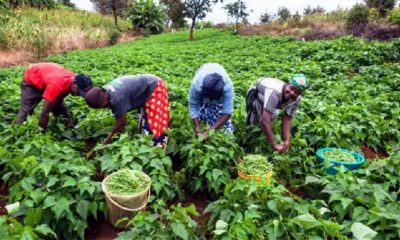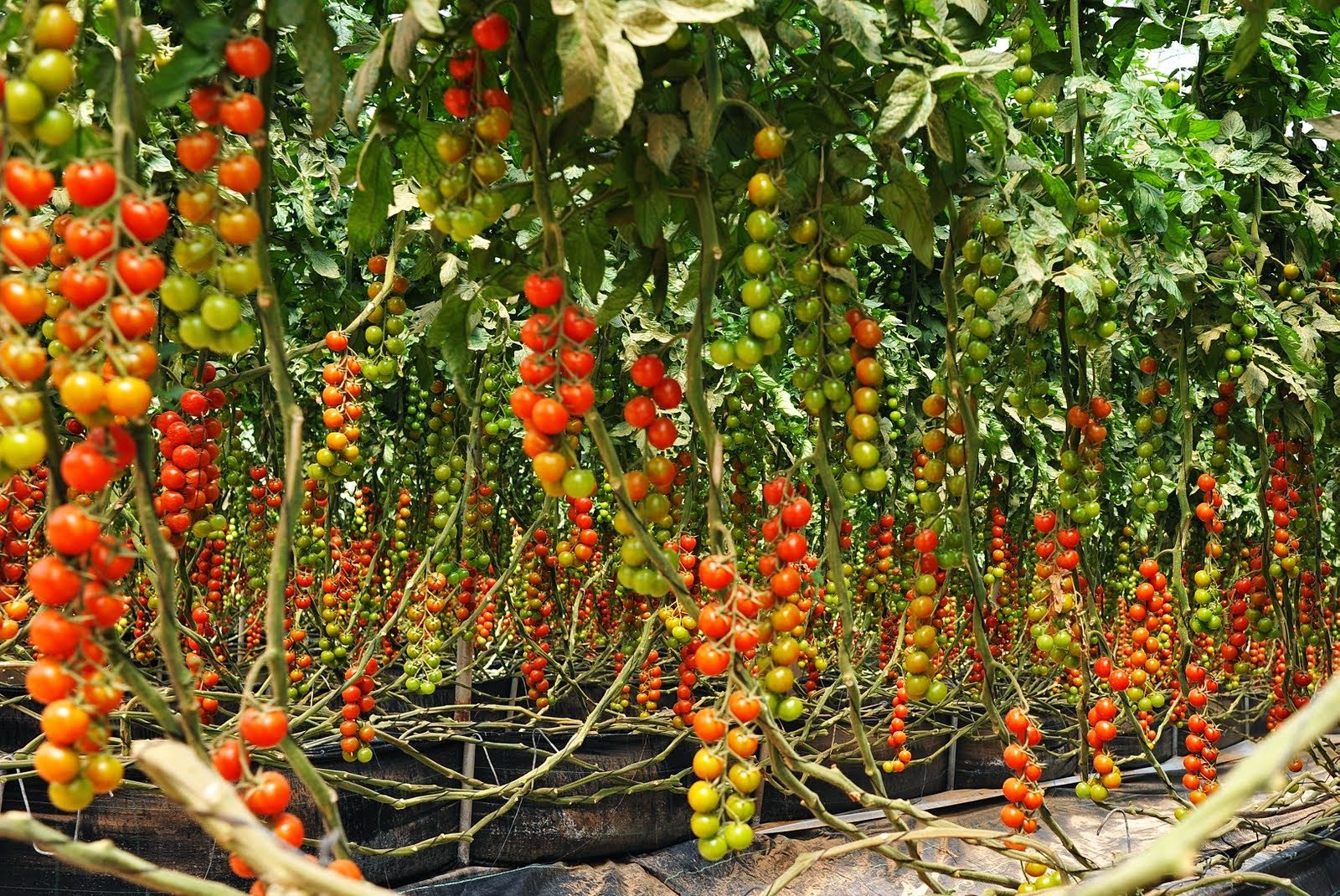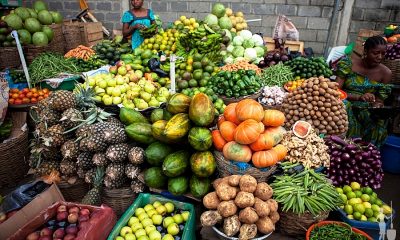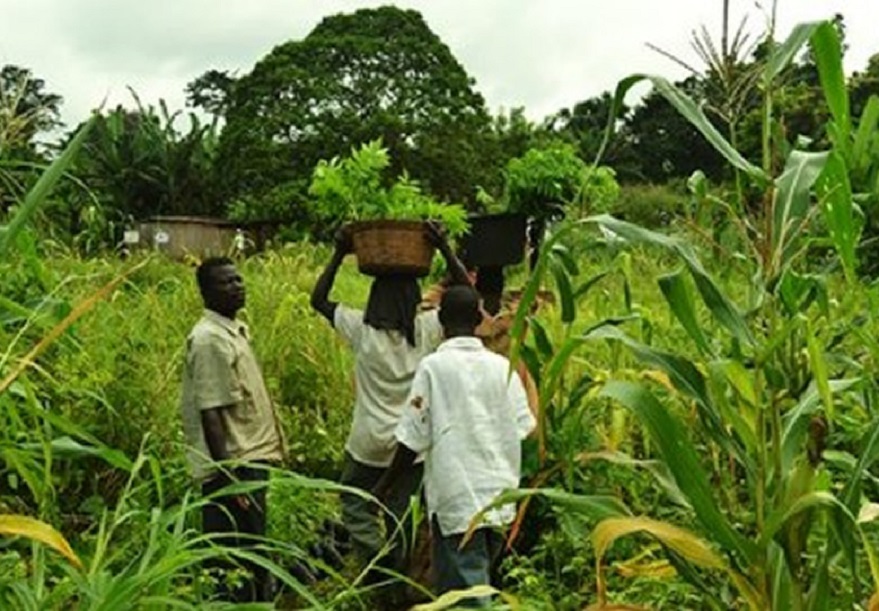Economy
FG Tasks Farmers On Periodic Check On Agric Products

By Dipo Olowookere
Minister of State for Agriculture and Rural Development, Mr Heineken Lokpobiri, has appealed to farmers and food handlers in the country to always carry out periodic examination of their products, to avoid fungal contamination, in order to protect public health, and secure good market for Nigeria’s agro-commodities.
Mr Lokpobiri made this call on Thursday at a one-day stakeholders’ sensitization workshop on the effects of mycotoxins on agricultural commodities, health and trade.
The Minister said, “It is imperative for both farmers and governmental agencies to adapt a better method to prevent fungal contamination of agricultural commodities during growing period, storage, handling, processing and transportation.”
He noted that over the years, Nigeria’s agricultural products have been exposed to pesticide residues and mycotoxins producing fungal, resulting in several rejections of some Nigeria’s agricultural produce by some trading partners, particularly the European Union (EU).
He noted that the risk of mycotoxins may affect growth performance and could be hazardous to consumers by reducing the quality of products and its market value, thereby resulting in commodity rejection in the international market.
Mr Lokpobiri added that, “These poisonous toxins produced by certain species of fungi, have profound adverse effects on the health of animals and humans, as they consume food from crops, poultry products, meat and fish infected by mycotoxins and have resulted in the cause of human and animal illnesses and deaths.”
The Minister called on farmers and other stakeholders along the food value chains to note that Nigeria has a tropical climate with an all year round high temperature and relative high humidity, and that this peculiarity provides good conditions for the growth of toxigenic molds. “The only way out from the adverse effects of these climatic factors on agricultural produce is to apply best agricultural practices at all material times”, the Minister stated.
Mr Lokpobiri therefore charged participants at the workshop to convey and spread the information on the negative and detrimental effects of consuming moldy products to the grassroots, adding that “In this regard, the knowledge you will acquire at this workshop would be of immense benefit not only to you, but the society at large.”
The Minister assured the workshop that his Ministry would continue to assist farmers and other stakeholders in improving the storage and handling of grains, nuts and other commodities in order to minimize the growth of molds to reduce the risk of contamination.
Earlier in his welcome remarks, Permanent Secretary of the Federal Ministry of Agriculture and Rural Development, Dr Shehu Ahmed, represented by the Coordinating Director, Nigeria Agricultural Quarantine Service in the Ministry, Dr Vincent Isegbe said that the workshop was organized to educate farmers, food handlers and all other relevant stakeholders in the agricultural sector on the harmful effects of mycotoxin contaminants to agricultural commodities and its consequential effects on animal and human health.
According to him, the workshop was also to mainstream information to all producers and consumers on its adverse effects on agricultural commodity trade.
He assured the participants that the Ministry was doing its best within its limited resources to assist farmers in many ways, especially when it affects crops during storage. He added that the Ministry was also partnering with relevant stakeholders in food production, processing, storage and handling along the food value chains to ensure that only safe food gets to the consumers’ table, as well as boost trade and quality of Nigeria’s agricultural produce.
In his goodwill message, Chairman, Senate Committee on Agriculture, Mr Abdullahi Adamu said his committee would continue to support the growth of Nigeria’s agricultural sector, and assured that the Nigeria Agriculture Quarantine bill would be passed by the National Assembly soon.
The Chairman, who was represented by a member of the committee, Senator Ovie Omo-Agege promised that the Senate Committee on Agriculture would work with the communiqué that would be presented to them at the end of the workshop.
Also, representative of UNIDO at the workshop, Prof Abimbola Uzomah said the unusual high level of mycotoxin is the cause of rejection of Nigeria’s agricultural products by the European Union (EU) and other countries.
She informed that UNIDO was flagging off a National Quality Infrastructure which requires the support of Nigeria for its success. She called for a policy in Nigeria to eliminate the menace, and disclosed that UNIDO was available to support, facilitate, train and teach stakeholders to enable the world do business with Nigeria.
Representative of the European Union, Ms Fatima Abdullahi Habib was hopeful that the workshop would have a positive impact in the control of mycotoxin in Nigeria.
In his contribution, representative of the National President of All Farmers Association of Nigeria (AFAN), Mr Daniel Okafor stressed the need for proper processing and packaging of Nigeria’s agricultural products for export.
He called for the replication of the sensitization workshop across the nation and the need to develop a common message in local languages for dissemination throughout the country.
Highlight of the event was the launching of a book on information in pictures on moldiness in agricultural commodities along food value chains for stakeholders and moisture meters for determination of moisture levels of grains by the Minister.
The Minister later donated an appreciable number of the book and moisture meters to farmers present at the workshop.
Related articles across the web
Economy
Unlisted Securities Shed 0.21% on Profit-taking
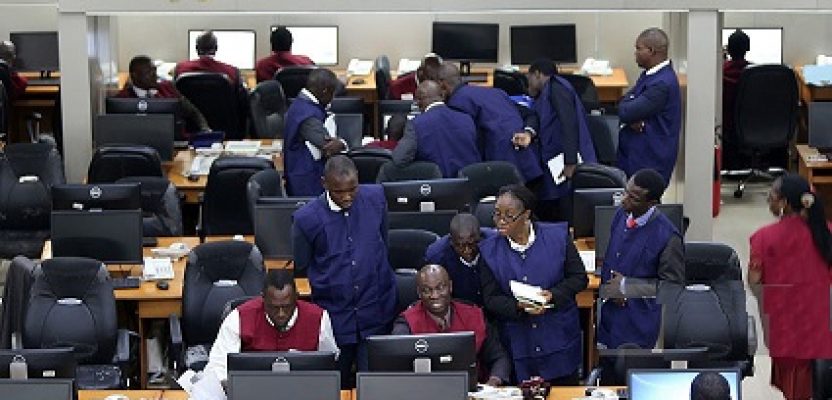
By Adedapo Adesanya
It was a bad day for the NASD Over-the-Counter (OTC) Securities Exchange on Monday, February 23, after it slumped 0.21 per cent at the close of business.
This pullback was influenced by profit-taking by investors in four securities, which overpowered the gains recorded by six others.
According to data, Central Securities Clearing System (CSCS) Plc dipped N3.79 to sell at N67.21 per unit compared with the previous N71.00 per unit, UBN Property Plc lost 13 Kobo to close at N1.98 per share versus N2.11 per share, Resourcery Plc fell 3 Kobo to 36 Kobo per unit from 39 Kobo per unit, and Geo-Fluids Plc depreciated 1 Kobo to close at N3.31 per share versus N3.32 per share.
As a result, the bourse’s market capitalisation went down by N5.04 billion to N2.384 trillion from N2.389 trillion, and the NASD Unlisted Security Index (NSI) decreased by 8.42 points to 3,985.90 points from 3,994.32 points.
Business Post reports that NIPCO Plc rose N23.00 to N253.00 per unit from N230.00 per unit, MRS Oil Plc added N14.50 to close at N214.50 per share versus N200.00 per share, FrieslandCampina Wamco Nigeria Plc grew by N1.85 to N93.40 per unit from N91.55 per unit, NASD Plc soared 40 Kobo to N51.28 per share from N50.88 per share, First Trust Mortgage Bank Plc advanced by 12 Kobo to N1.32 per unit from N1.20 per unit, and Food Concepts Plc improved by 6 Kobo to N3.76 per share from N3.70 per share.
As for the trading data, the volume of securities jumped 99.7 per cent to 7.3 million units from 3.7 million units, but the value depleted by 26.8 per cent to N61.8 million from N84.5 million, and the number of deals slipped 7.1 per cent to 39 deals from 42 deals.
At the close of trades, CSCS Plc was the most active stock by value (year-to-date) with 32.9 million units sold for N1.9 billion, followed by Geo-Fluids Plc with 120.6 million units valued at N473.4 million, and Resourcery Plc with 1.05 billion units exchanged for N408.7 million.
Resourcery Plc closed the session as the most active stock by volume (year-to-date) with 1.05 billion units worth N408.7 million, followed by Geo-Fluids Plc with 120.6 million units valued at N473.4 million, and CSCS Plc with 32.9 million units traded for N1.9 billion.
Economy
Customs Street Opens Week Bullish After 0.66% Surge

By Dipo Olowookere
The Nigerian Exchange (NGX) Limited ended the first trading session of the week on a positive note after it chalked up 0.66 per cent on Monday.
The gains recorded yesterday were boosted by the 3.42 per cent rise by the insurance sector, the 1.44 per cent surge by the banking index, and the 1.30 per cent leap by the industrial goods counter. They offset the 0.20 per cent loss posted by the energy sector and a 0.11 per cent decline suffered by the consumer goods industry.
Consequently, the All-Share Index (ASI) closed higher by 1,273.78 points to 196,263.55 points from 194,989.77 points, and the market capitalisation appreciated by N805 billion to N125.969 trillion from N125.164 trillion.
Business Post observed that investor sentiment turned bearish during the session after Customs Street ended with 34 price losers and 33 price gainers, representing a negative market breadth index.
Fortis Global Insurance gained 10.00 per cent to trade at 66 Kobo, Okomu Oil expanded by 10.00 per cent to N1,605.60, Fidson rose by 9.90 per cent to N95.50, NPF Microfinance Bank rose by 9.89 per cent to N6.89, and Infinity Trust Mortgage Bank jumped 9.84 per cent to N17.30.
On the flip side, The Initiates weakened by 10.00 per cent to N17.55, Deap Capital deflated by 9.97 per cent to N6.86, LivingTrust Mortgage Bank went down by 9.92 per cent to N5.90, Multiverse lost 9.92 per cent to close at N22.70 per cent, and Ellah Lakes shrank by 9.77 per cent to N11.55.
Yesterday, market participants traded 1.3 billion shares worth N31.5 billion in 95,091 compared with the 820.5 million shares valued at N28.3 billion in 63,507 deals last Friday, indicating an increase in the trading volume, value, and number of deals by 58.44 per cent, 11.31 per cent, and 49.73 per cent apiece.
Japaul ended the session as the busiest stock after selling 474.0 million units worth N2.0 billion, Chams traded 51.5 million units for N221.3 million, Jaiz Bank exchanged 48.3 million units for N566.9 million, Secure Electronic Technology transacted 46.3 million units worth N68.8 million, and Mutual Benefits sold 42.5 million units valued at N242.5 million.
Economy
Naira Further Crashes to N1,349/$1 at Official Market
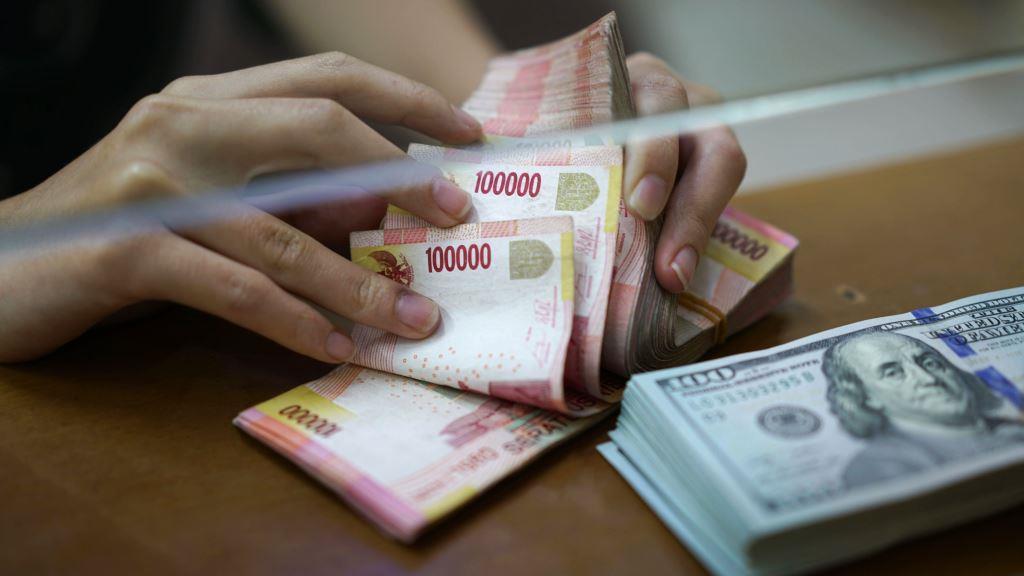
By Adedapo Adesanya
The first trading day in the currency market in Nigeria ended bearish for the Naira as its value further weakened against the US Dollar in the Nigerian Autonomous Foreign Exchange Market (NAFEX) on Monday by N2.92 or 0.22 per cent to N1,349.24/$1 from the N1,346.32/$1 it was traded last Friday.
Also in the spot market, the Nigerian currency depreciated against the Pound Sterling by N6.62 during the trading day to close at N1,821.87/£1 versus the preceding session’s N1,815.25/£1, and lost N6.80 on the Euro to settle at N1,591.42/€1, in contrast to the previous rate of N1,584.62/€1.
At the GTBank forex desk, the Nigerian Naira crashed against the greenback yesterday by N1 to quote at N1,357/$1 versus the preceding session’s closing value of N1,356/$1, but in the black market, the Naira appreciated by N5 to close at N1,365/$1 compared with the preceding trading day’s N1,370/$1.
The Naira slide came amid renewed pressure as weekly inflows declined, as Bureaux De Change (BDC) operators were unable to purchase Dollars from banks two weeks after the Central Bank of Nigeria (CBN) reopened the official FX Market window to them.
It had been expected that BDCs would help to further deflate the parallel market premium, but according to reports, BDC operators had yet to commence FX purchases from commercial banks, two weeks after the apex bank said legitimate agents can access up to $150,000 from the banks.
There were no FX inflows from the CBN during the past week, according to a report by the research department of Coronation Merchant Bank.
Meanwhile, Nigeria’s external reserves, which provide the CBN with firepower to support the naira, rose to $48.77 billion as of February 19, 2026.
Meanwhile, the cryptocurrency market was in the red as a broader risk-off shift tied to an emerging “AI scare trade” in equities is weighing on crypto markets.
This is leading traders to sell, while the sharp liquidation events that typically attract dip buyers have seen no such move recently, with Bitcoin (BTC) down by 3.2 per cent to $62,901.86.
Further, Ethereum (ETH) depreciated by 2.5 per cent to $1,821.13, Cardano (ADA) slid 1.9 per cent to $0.2571, Litecoin (LTC) went down by 1.9 per cent to $50.45, Solana (SOL) shrank 1.8 per cent to $76.54, Dogecoin (DOGE) declined by 1.7 per cent to $0.0912, Ripple (XRP) slumped 1.2 per cent to $1.32, and Binance Coin (BNB) lost 0.6 per cent to sell for $589.88, while the US Dollar Tether (USDT) and the US Dollar Coin (USDC) closed flat at $1.00 each.
-

 Feature/OPED6 years ago
Feature/OPED6 years agoDavos was Different this year
-
Travel/Tourism10 years ago
Lagos Seals Western Lodge Hotel In Ikorodu
-

 Showbiz3 years ago
Showbiz3 years agoEstranged Lover Releases Videos of Empress Njamah Bathing
-

 Banking8 years ago
Banking8 years agoSort Codes of GTBank Branches in Nigeria
-

 Economy3 years ago
Economy3 years agoSubsidy Removal: CNG at N130 Per Litre Cheaper Than Petrol—IPMAN
-

 Banking3 years ago
Banking3 years agoSort Codes of UBA Branches in Nigeria
-

 Banking3 years ago
Banking3 years agoFirst Bank Announces Planned Downtime
-

 Sports3 years ago
Sports3 years agoHighest Paid Nigerian Footballer – How Much Do Nigerian Footballers Earn







